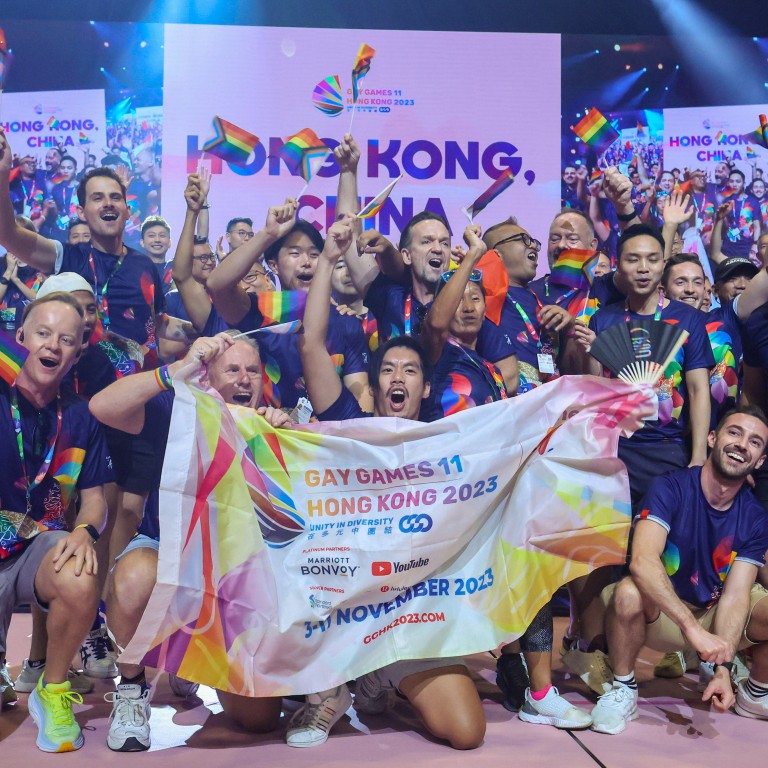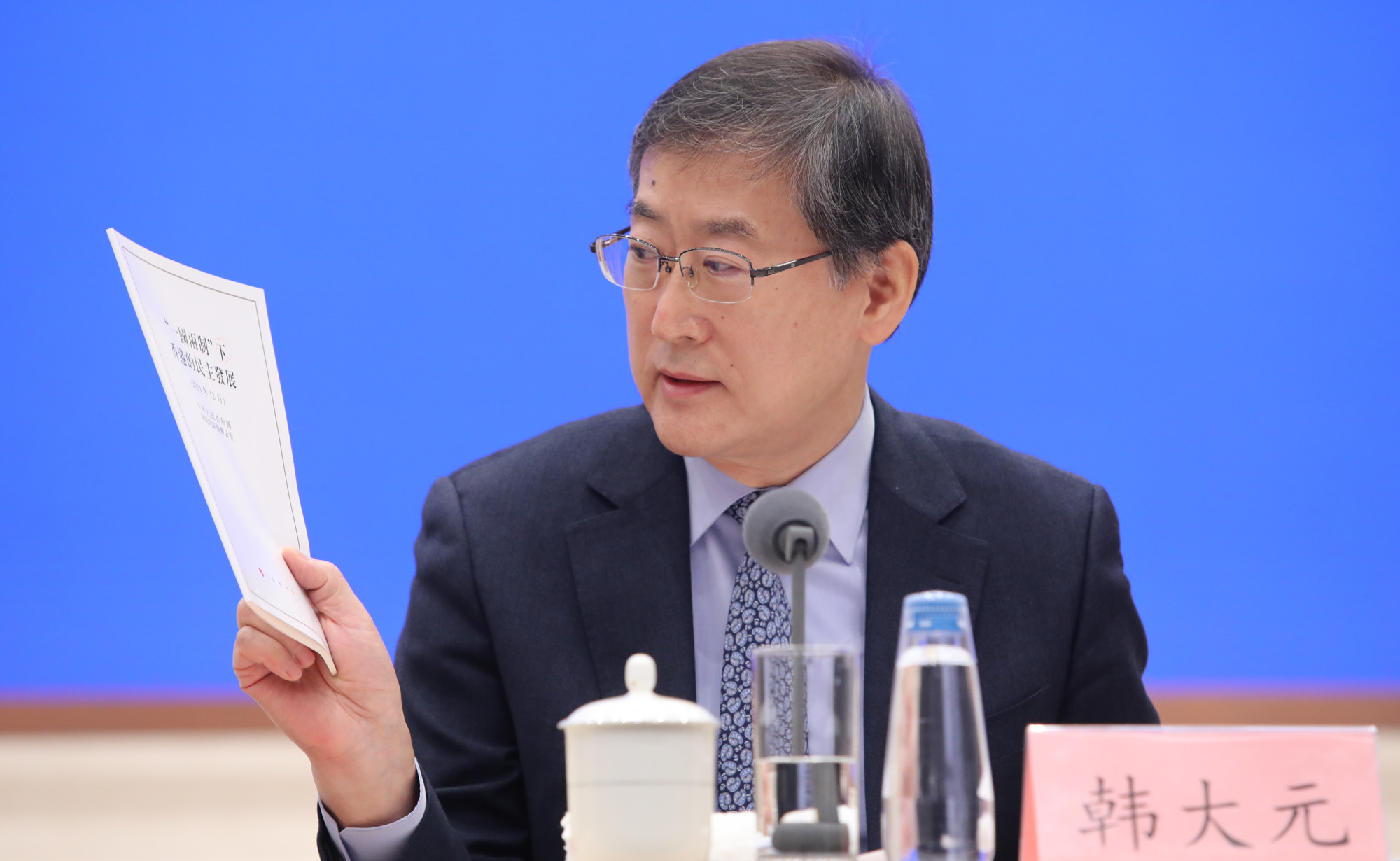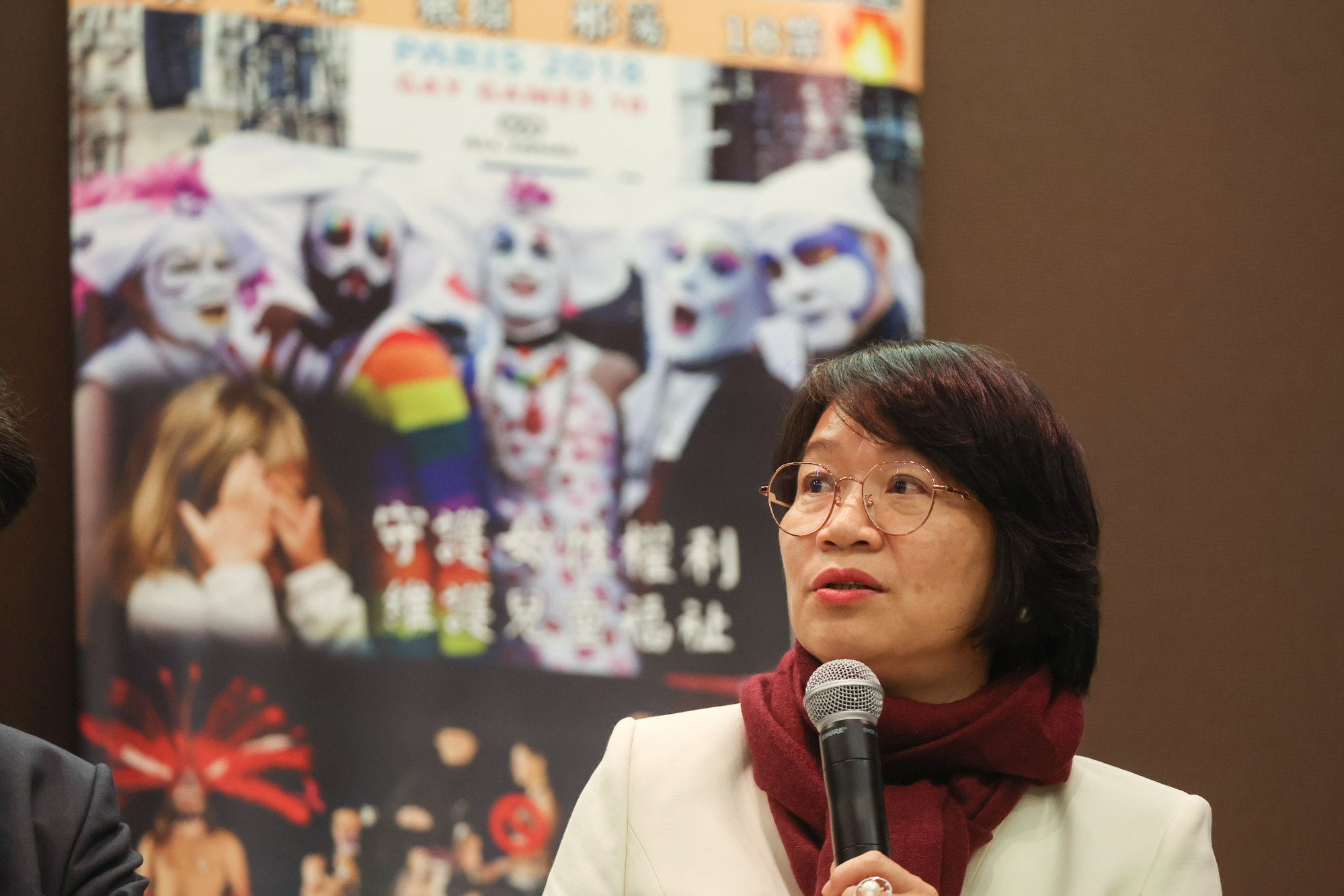
Hong Kong hosting Gay Games shows openness, constitutional expert says, but fellow Basic Law Committee member urges city to uphold traditional values
- Renmin University’s Han Dayuan tells forum that sporting event helped show openness and tolerance, values integral to ‘one country, two systems’ policy
- But lawmaker Priscilla Leung argues discussions on same-sex marriage can ‘tear apart Hong Kong society’
Hong Kong hosting the first Gay Games in Asia shows the city’s tolerance and openness, a leading constitutional expert has said, stressing the values are integral to the “one country, two systems” governing principle.
But the remarks that Han Dayuan, a professor at Renmin University in Beijing, made at a legal forum on Thursday were challenged by fellow Basic Law Committee member Priscilla Leung Mei-fun, who later told the Post she needed to protect “traditional Chinese values”.
“Any discussion on gay marriage would tear apart Hong Kong society with an impact that could be worse than the enactment of the Basic Law’s Article 23,” she told the audience, referring to the city’s own national security legislation the administration plans to enact before the end of next year.

Han and Leung were among 18 speakers at the Basic Law forum held by a pro-Beijing publisher and which also featured Chief Executive John Lee Ka-chiu, Wang Songmiao, secretary general of Beijing’s liaison office, and Hong Kong’s first justice minister Elsie Leung Oi-sie. They shared their views on the city’s mini-constitution and the one country, two systems governing principle.
In his speech, Han told the audience that the hosting of the Gay Games in Hong Kong earlier this month showcased respect towards the LGBTQ community and the equality it enjoyed.
“The Games provided a tangible expression of Hong Kong’s openness, diversity and inclusiveness, helping the international community to better understand the city,” he said.
The Beijing scholar argued that Hong Kong’s long-term prosperity and stability since its return to Chinese rule in 1997 could be attributed to the one country, two systems policy and the spirit of tolerance it embodied.

Economic development required unleashing the creativity and initiative of different sectors, which came from “a diverse and enthusiastic consensus” on important topics, he added.
“Under one country, two systems, equal, rational and free discussion on different issues helps to maintain social vitality and unite different social sectors and expand the forces that safeguard one country, two systems,” he said.
But Leung, taking to the stage right after Han, hit back by saying Hong Kong had always been very traditional regarding marriage and family, despite being a city where East met West.
“Upholding traditional views on marriage does not mean we are intolerant,” she said. “We are indeed inclusive.”
Leung was among a group of lawmakers calling for a ban on the Games, citing national security threats and the promotion of same-sex marriage.
Hong Kong shared the same traditional marriage values as the rest of the country, she said, arguing the city should not go against the nation.
“Hong Kong is able to significantly influence people in mainland China,” she said. “If we create a crack and undermine the traditional family culture, young people on the mainland will learn from it.”
Leung told the Post after the forum that she had to directly respond to Han’s speech to “safeguard traditional Chinese values”, although she had not planned to do so in her talk.
“It is possible that we will have another discussion within the [Basic Law] Committee in future,” she said.
Forum organiser Bauhinia Magazine later uploaded the text of Han’s speech on its website but without his remarks on the Games.
Han is not the only political heavyweight who has recently been outspoken about LGBTQ rights. Financial Secretary Paul Chan Mo-po told Silicon Valley entrepreneurs on the sidelines of an Apec summit last week that Hong Kong distinguished itself from the rest of the country by its separate legal system.
Chan then cited a landmark ruling by the Court of Final Appeal in September that required the government to draw up “core rights” of same-sex relationships. The minister said the ruling proved the city’s edge rested in the independence of its judiciary.
Speaking at the same event, Chief Executive Lee reiterated that his administration would next year complete national security legislation required under Article 23 of the Basic Law, the city’s mini-constitution, which would further reassure investors.
“Legislating Article 23 will maintain the city’s prosperity and stability, reassuring global companies and talent to invest, conduct business, work and study in Hong Kong with greater confidence,” he said.
Beijing imposed a national security law on Hong Kong in 2020 following anti-government protests, but the city is required to pass similar legislation that also covers theft of state secrets and targets the influence of foreign political organisations.
Lee also said he would travel to Asean and European countries next year to attract business and talent to Hong Kong, while also promoting the city’s achievements under the one country, two systems principle.
Wang from the liaison office addressed the audience after Lee and underscores that Hong Kong’s executive, legislative and judicial branches must adhere to the executive-led system established by the Basic Law.
The three branches should strengthen cooperation and checks and balances, ensure that all powers were exercised in accordance with the law and enhance effectiveness by improving governance, he said.

